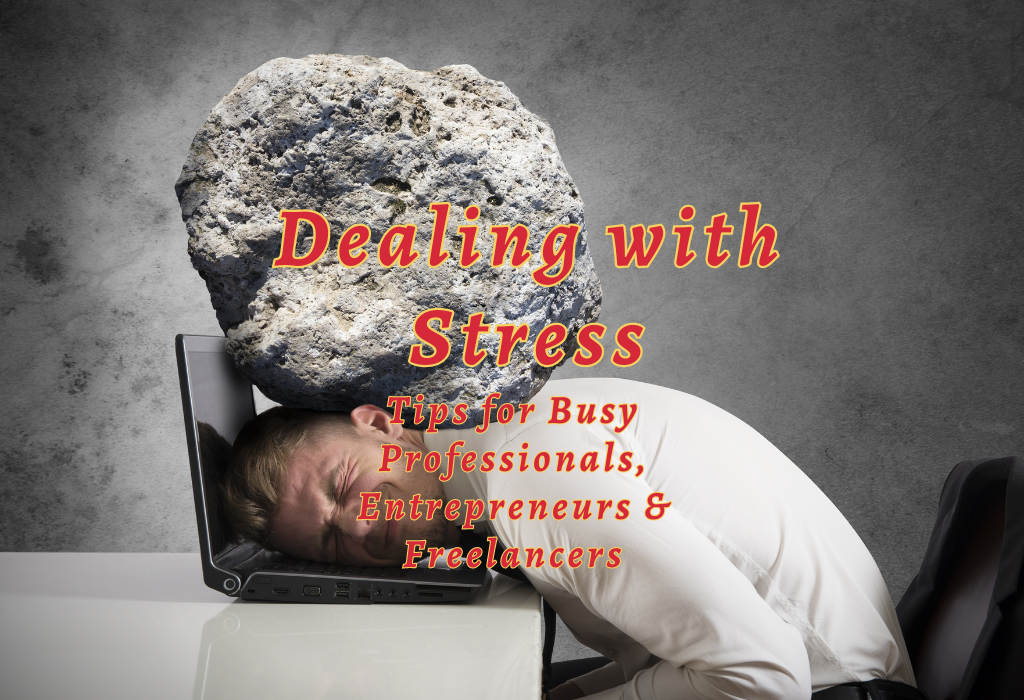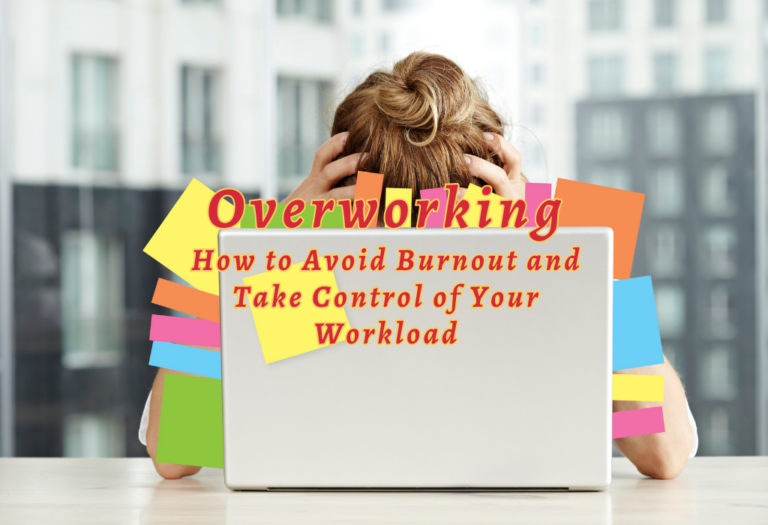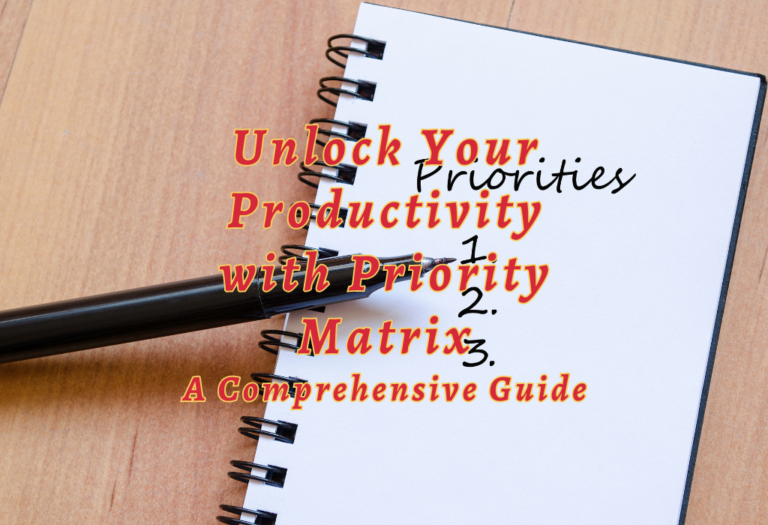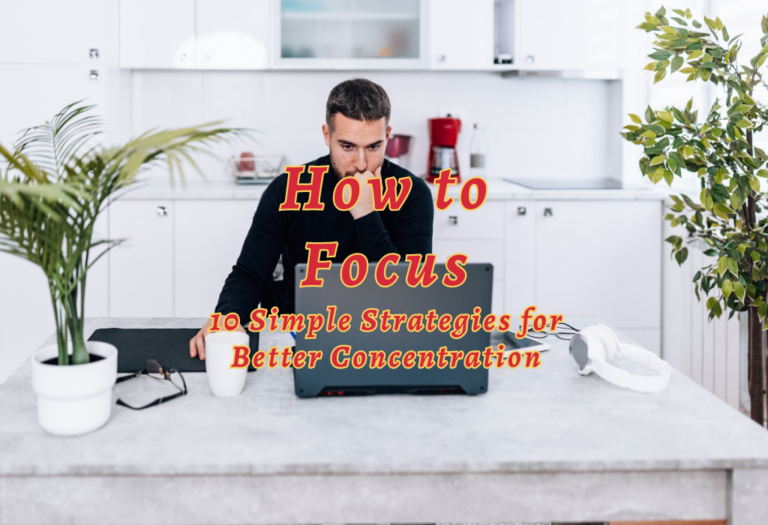Dealing with Stress: Tips for Busy Professionals, Entrepreneurs & Freelancers
Stress can be a silent killer for busy professionals, entrepreneurs, and freelancers. With our hectic schedules and high demands placed upon us, it’s no wonder that stress is prevalent in the workplace today. Learning how to manage this type of pressure effectively is essential if we want to continue succeeding professionally while living balanced lives.
Dealing with stress requires knowledge of what causes it and strategies to reduce its effects on our mental and physical health.
In this blog post, you’ll learn about identifying signs of stress, understanding its root causes, finding professional support when needed, and implementing practical tips into your daily routine to help you stay productive without sacrificing your well-being.

Why is Stress Management So Important?
Stress management is essential for busy professionals, entrepreneurs, and freelancers. Stress can be a significant roadblock to productivity and success in the workplace. It’s critical to recognize the signs of stress so that you can take steps to manage it effectively.
When left unchecked, stress can lead to physical and mental health issues such as headaches, fatigue, anxiety, depression, difficulty concentrating or making decisions, irritability, or anger outbursts. It can also affect your relationships with colleagues and clients by creating tension or conflict.
Stress is a normal part of life but can become overwhelming if not managed properly. It’s essential to recognize the physical, emotional, and cognitive symptoms of stress so that you can take steps to address it before it becomes too much.
Physical symptoms of stress may include headaches, muscle tension or pain, chest pain, fatigue, and stomach problems such as nausea or diarrhea. These physical signs are often the first indicators that your body feels overwhelmed by stress.
Emotional stress symptoms may include anxiety or fearfulness; irritability; sadness; loneliness; lack of motivation or focus; difficulty making decisions; and feeling overwhelmed by tasks at hand. If you feel these emotions more frequently than usual and for no apparent reason, it could indicate that you are experiencing high-stress levels.
It is essential to be aware of stress’s physical, emotional, and cognitive signs to identify it. By understanding the causes of stress, we can take steps to manage our emotions and reduce their effects on our lives.
Causes of Stress
Stress is a standard part of life, but it may become overwhelming if you don’t take the time to handle it. Knowing when you are most susceptible to stress helps you prepare for and deal with challenging situations.
Mornings can be particularly stressful for some people as they rush to prepare for work or school and attempt to complete their tasks before the day begins. Others may find nights more difficult as they wind down from a long work day and try to unwind after an exhausting day.
Workplace stress can be caused by some variables, including workloads, deadlines, interpersonal interactions with coworkers and managers, and a lack of control over decisions affecting your job or career path. Other pressures in the workplace include excessive hours, low compensation, and inadequate benefits. These types of problems can lead to feelings of irritation and powerlessness, which can result in physical and emotional suffering.
Personal stress is frequently a result of events outside the workplace, such as financial or health difficulties. Relationship issues and the loss of a loved one may also contribute to an individual’s stress levels. In addition to these more severe difficulties, some individuals may become overwhelmed by mundane duties such as grocery shopping and errand running.
Environmental variables such as noise pollution from traffic or building sites contribute to job stress. Temperatures that are too hot or too cold due to inadequate air conditioning systems can also cause tension among employees attempting to remain focused on their work despite an uncomfortable atmosphere. Bad office lighting may also contribute to weariness, which could lead to additional interruptions during working hours.
Multiple causes can contribute to stress, but with the proper tactics and approaches, you can learn to handle it. The following section will cover techniques to minimize stress and improve your general health.
Practice the four A’s
Stress is an unavoidable part of life, but it doesn’t have to take over. When faced with a stressful situation, practice the four A’s: avoid, alter, adapt, and accept.
If you can remove yourself from the source of stress or eliminate it, do so. This could mean avoiding certain people or situations that trigger your stress response. It could also mean taking a break from work when you’re feeling overwhelmed or saying no to requests that are too much for you.
Sometimes we can’t avoid a stressful situation altogether, but we can change how we approach it. For example, if your boss has asked for something unrealistic by tomorrow morning and there’s no way around it, try breaking down the task into smaller chunks and setting realistic goals for each step along the way instead of tackling everything at once in one night.
In some cases where avoidance isn’t possible and alteration isn’t enough, adaptation may be necessary to manage stress levels effectively. Learning new skills such as time management techniques or communication strategies might help make complex tasks more manageable while reducing anxiety levels in challenging situations like meetings with superiors or networking events with strangers.
Lastly, acceptance should be used when all other options fail—when none of these strategies will work because the situation cannot be changed nor adapted to fit our needs better—we must learn how to accept what is out of our control and move on without letting it overwhelm us unnecessarily any more protracted than necessary. Acceptance doesn’t mean giving up; instead, it means recognizing reality so that we can focus our energy on finding solutions instead of dwelling on problems beyond our power to solve them directly ourselves.
Professional Support for Dealing with Stress
Regarding managing stress in the workplace, various professional support options are available. Counseling and therapy services can help individuals identify sources of stress and develop coping strategies for dealing with them. These services may be provided by mental health professionals such as psychologists or psychiatrists or through employee assistance programs (EAPs) offered by employers. EAPs provide confidential counseling and other resources to employees who need additional support in managing their work-related stressors.
Peer support groups can also be beneficial for those struggling with workplace stress. In these groups, members share experiences related to common issues such as workload demands, interpersonal conflicts, job insecurity, etc., while providing emotional support and practical advice to one another. This group setting allows individuals to gain insight from others’ perspectives while feeling less isolated in their struggles with workplace stressors.
Professionals must take advantage of the various forms of professional support available when they feel overwhelmed by work-related stresses. Professional guidance can help individuals better understand their own needs and develop effective strategies for reducing their levels of distress at work so that they can remain productive without sacrificing their well-being.
Professional support can be an invaluable resource for dealing with stress, so taking advantage of any available services, such as counseling and therapy, employee assistance programs, or peer support groups, is essential. Now let’s look at practical tips for reducing stress in the workplace.
Practical Tips for Reducing Stress in the Workplace
Stress in the workplace is a common problem for busy professionals, entrepreneurs, and freelancers. Fortunately, there are helpful tips that can help reduce stress levels and improve overall productivity.
To reduce stress at work, it’s important to prioritize tasks according to importance or urgency. This will help you focus on what needs to be done first while setting boundaries around how much time should be spent on each task. It’s also essential to learn when to say “no” so that you don’t overextend yourself or take on too many projects at once.
Clutter can lead to feelings of overwhelm which can increase stress levels significantly. Having an organized workspace with everything in its place helps create a sense of calm and makes it easier for you to find what you need quickly without having to search through piles of paperwork or other items scattered about your desk. Investing in organizational tools such as file folders, label makers, drawer organizers, etc., will make keeping your workspace neat and tidy much more accessible.
Taking regular breaks throughout the day allows us time away from our work duties which helps clear our minds and reduces stress levels significantly over time. Additionally, taking vacations away from work allows us restful relaxation, reducing stress and increasing creativity upon returning to the office environment refreshed after some well-deserved downtime away from work responsibilities.
Engaging in relaxation activities such as yoga or meditation during break times is another great way to reduce workplace-related stress. These activities allow us to relax without worrying about deadlines or other pressures associated with our job roles. Other relaxation activities could include listening to music, going out for lunch, reading books, etc.
By taking the time to prioritize tasks, set boundaries, and create an organized workspace, you can reduce stress in the workplace. However, self-care strategies are alscrucialnt for professionals to manage their stress levels long-term.
Self-Care Strategies for Professionals To Reduce Stress
Establishing healthy habits and routines is an essential part of self-care for professionals. This can include getting enough sleep, eating a balanced diet, exercising regularly, and taking breaks throughout the day. Setting aside time each day for relaxation activities such as yoga or essential is also important. Regular vacations are another way to ensure you are not overworking yourself.
Setting realistic goals and expectations can help reduce stress levels in the workplace. It’s essential to be realistic about what you can accomplish in a given amount of time, so it’s best to break down large tasks into smaller ones that are more manageable. Prioritizing tasks according to importance will also help keep your workload from overwhelming.
Engaging in relaxation activities such as yoga or meditation can help reduce stress levels by allowing you to take a step back from your workday responsibilities and focus on calming your mind and body. Other relaxation activities include reading books, listening to music, going for walks outside, or engaging in creative hobbies like painting or writing poetry.
When dealing with long-term stressors such as job insecurity or financial worries, it’s vital to seek professional help when necessary rather than trying to cope alone. Seeking counseling services from a mental health professional may be beneficial if these issues become too difficult for you to handle. Building resilience through positive thinking techniques, such as reframing negative thoughts into positive ones, may also be helpful when facing long-term stressors at work or home life
If the strategies mentioned above do not seem compelling enough, seeking professional help might be necessary when dealing with high stress levels due to personal circumstances beyond one’s control (e.g., family problems). Consulting with a therapist specializing in cognitive behavioral therapy (CBT) may provide valuable insight into how one can better manage their emotions during stressful work or home life.
Developing resilience through positive thinking techniques, such as reframing negative thoughts into more constructive ones, has been proven effective when managing chronic stress caused by prolonged periods of adversity. This type of cognitive restructuring helps individuals develop healthier coping mechanisms, ultimately leading them towards greater emotional well-being.
Making time for fun and enjoyment is essential when dealing with high levels of workplace related anxiety. Allowing yourself moments away from the office where you engage in leisurely pursuits like playing sports, attending concerts, visiting museums etc. helps create balance between work life and personal life thus reducing overall feelings of burnout and exhaustion associated with long hours spent working without any respite.
Lack of sleep increases stress hormones, so getting enough restful sleep is essential for reducing stress levels.
Writing down worries or difficult emotions allows us release pent up tension while also gaining clarity around what’s really bothering you at any given moment .
FAQs in Relation to Dealing With Stress
Conclusion
It is important to remember that dealing with stress is a process and it takes time. It requires effort, dedication, and self-care. Professional support can be invaluable in helping you identify the causes of your stress and develop strategies for managing it.
There are also practical tips for reducing stress in the workplace as well as self-care strategies that can help you cope with stressful situations more effectively. With these tools at your disposal, you will be better equipped to deal with stress and live a more fulfilling life.






